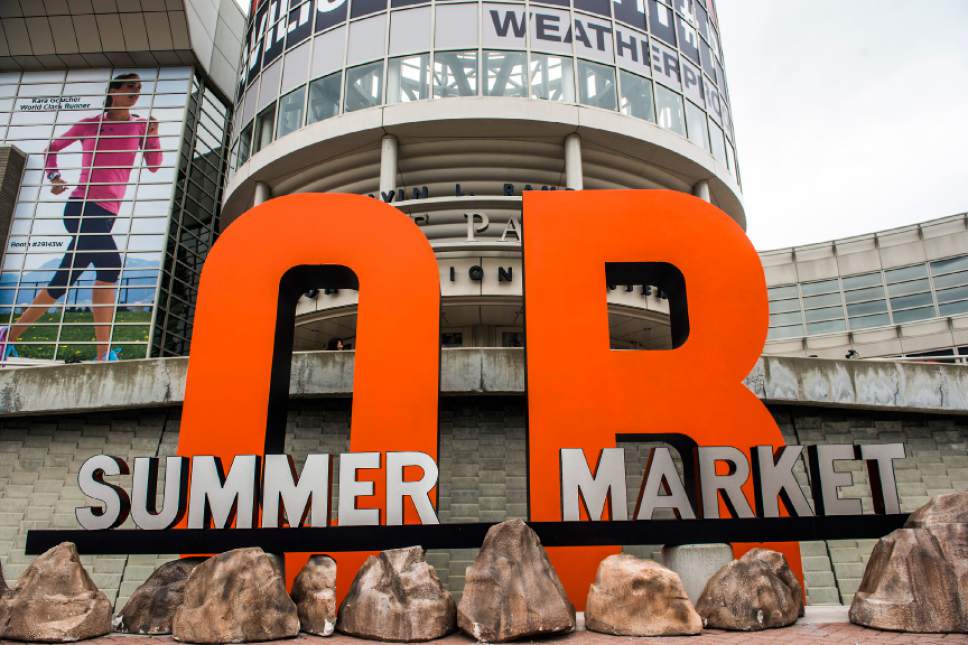This is an archived article that was published on sltrib.com in 2017, and information in the article may be outdated. It is provided only for personal research purposes and may not be reprinted.
The tents are going up on South Temple. Restaurants are stocking up on craft beers. In a couple of weeks, the army in cargo shorts will invade for the last time.
Hello and goodbye, outdoor retailers. The massive trade shows that have been a Salt Lake City staple for more than two decades will have their curtain call in two weeks. The shows are leaving for Denver, the capital of a state the retailers say has more respect for its public lands, as evidenced in Utah's rejection of Bears Ears National Monument.
In announcing Denver's selection this week, the retailers also upped the payoff, adding a third show that Denver officials say will put the total economic benefit over $100 million per year.
"I spend my life trying to think about the economic development strategy for the eastern Plains and rural parts of the state. This is one of the best strategies you can have, to have more small outdoor recreation companies," Colorado Gov. John Hickenlooper said at a Thursday news conference. "This industry is only going to grow. It's like cybersecurity. It's only going to keep growing and growing. … The more people enjoying outdoor recreation, the better the world is. How can you not support an industry [like this]?"
Utah's leaders found a way, and it was all over a fight they essentially have already lost. Despite a massive push by Gov. Gary Herbert, the Utah Legislature and Utah's congressional delegation, Interior Secretary Ryan Zinke did not recommend that th e Bears Ears monument be rescinded.
He did recommend that it be smaller, and that may indeed happen. But there is every reason to believe there will always be a Bears Ears National Monument in Utah. Our leaders' vehemence didn't kill it, but it did chase off the state's largest convention and all the positive exposure that came with it. At best, that was a huge miscalculation.
It is only a matter of time before Utah is talking up the Bears Ears monument in tourism circles, as it should. The unique assets of the region are national treasures, and Utah will one day look at the monument as it does its "Mighty Five" national parks — as another opportunity.
Zinke also recommended that Congress pass legislation to codify American Indian tribes' involvement in managing the monument, but that may have to wait until Rep. Rob Bishop has retired. Bishop's congressional bill to manage the area — the Public Lands Initiative — appears to be a nonstarter and another thing his co-sponsor Jason Chaffetz left unfinished.
The PLI was hardly an effort at joint management anyway. Bishop ignored the five tribes pushing for a monument until it was too late. Repairing Utah's historic relationship with American Indians may be the bigger missed opportunity than the trade shows.
Meanwhile, we'll still be submersed in outdoor products. Utah remains headquarters to several major industry players, and you can't swing a windbreaker in a brewpub or a ski lodge without hitting a Patagonia label. We also won't be moving our mountains as far from town as Denver's.
We wish you well, outdoor retailers. Perhaps our paths will cross again some day.



